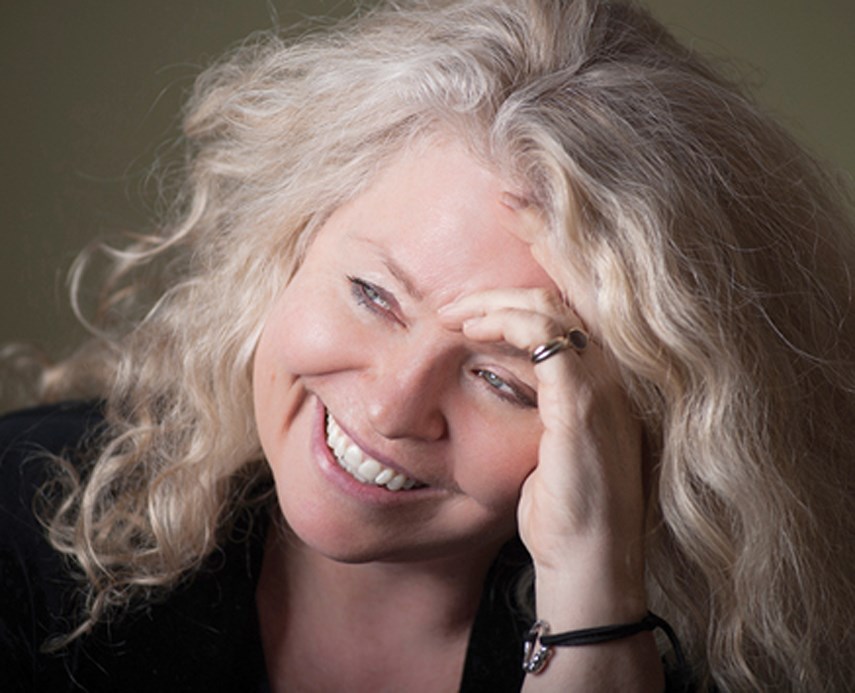Mouthpiece. Directed by Patricia Rozema. Vancouver International Film Festival: First screening on Monday, Oct. 1, at 9:15 p.m. at the Vancouver Playhouse. For schedule visit viff.org.
Grief lives deep inside, as murky and unmoving as swamp water.
Mouthpiece, a new Canadian drama (and sometime musical comedy), examines grief as it roils and bubbles amid the tasks inflicted on the bereaved: deciding between funeral shrimp and funeral melon, picking the right casket, writing the eulogy. And, most daunting of all – at least in this movie – speaking that eulogy aloud.
The story begins with actors Amy Nostbakken and Norah Sadava (who also wrote the play on which Mouthpiece is based) laughing and singing off-key amid the hazy euphoria of a Toronto pub and a wobbly bicycle ride home.
Morning finds the duo – as those mornings always do – feeling much older and far less wise than the night before. And that’s when life changes.
Mom is dead.
She was found face down in a slice of lemon loaf.
“I definitely aim for humour and sadness in equal measure,” explains director Patricia Rozema.
As we try to figure out the relationship between the characters (Are they friends, lovers, sisters?) the duo talk about everything and everything they talk about is about mom.
More character-driven than plot-driven, we follow the pair of young women as they contemplate what to wear to the funeral and what to say about a woman who gave them life.
As they prepare (and sometimes avoid preparing) for the funeral, we’re treated to conversations about equality, the way women are looked at, and the social and romantic ramifications a woman faces by eating French fries in public.
Tooling toward her Toronto home, Rozema reflects on first seeing the play.
“I went dutifully because my daughter was an intern at the theatre company,” she recalls.
But the play was funny and fierce and, perhaps most importantly, new, Rozema says.
“It felt like a young voice,” she says. “It was kind of a feminist awakening for young women who didn’t think they needed to be feminists anymore.”
Rozema, the director of fare ranging from Mansfield Park to Into the Forest, was also struck by the “dual consciousness” of the play, which she likened to Charlie Kaufman’s Adaptation.
She recommended the play to Jodie Foster (“Through a friend of a friend,” Rozema clarifies.) who brought the show to Los Angeles.
Somewhere in the midst of it all, Rozema sat down with the playwrights for coffee.
“Just before that I thought: You know what? I’m going to make a movie out of this.”
One of the biggest changes from the theatrical version is the addition of the mother – who we eventually get to know as Elaine.
Through a series of flashbacks we see Elaine’s professional setbacks and her slowly fraying marriage. Those sequences also remind us that if we ever wondered if our child saw that, the answer is always, invariably, yes. Even if they’re not exactly sure what they saw.
“I made it for my mom, I realized,” Rozema says. “For a long time I thought I was making it about my mom.”
The play was a stinging hardball, Rozema says.
“I turned it into a softball – not that that’s so much softer – you don’t want to be hit by a softball. It’s just bigger.”
The movie was largely written with Nostbakken and Sadava at Rozema’s cabin. It’s useful to have a group of three, Rozema explains, which allows for the possibility of tiebreakers.
But it was largely a “joyful collaboration,” the director says, noting the trio tended to make decisions unanimously.
The movie would be different from the play but it wouldn’t be altered from the writers’ vision.
“I can’t imagine trying to take this away from you and make it something you don’t like,” she remembers telling the playwrights. “I can’t live with myself being a person who does that.”
With 30 years in the director’s chair beginning with I’ve Heard the Mermaids Singing in 1987, Rozema says she sometimes regrets not being as daring as she might have been.
Mouthpiece, however, features musical sequences, a nod to Ruth Bader Ginsburg and a sex scene that recalls one of the funniest moments in Annie Hall.
“You witness here, a large, aging child in a sandbox,” Rozema says with a laugh.
Also featuring toques, boots, and perilously narrow bike lanes, the movie is “specifically Canadian,” Rozema says.
“It might limit my success and reach in America,” she jokes.
Rozema recently watched the picture with her two daughters during its debut at the Toronto International Film Festival.
“I missed meeting Julianne Moore because I had to bring my daughter home,” Rozema laughs. But on that ride home she asked her 14-year-old daughter what she thought.
“Well, it’s weird,” came the reply.
“I thought, ‘You’ve got to do better than that,’” Rozema remembers thinking. But then came the best review she could’ve got.
“I wanted to cry the whole time but I was laughing the whole time,” her daughter told her.
It was exactly what she wanted to hear.
“My average day has more joy in it because I know that when people get to the end of their life they generally want to hang onto life. So I’m hanging on now. With both hands.”



